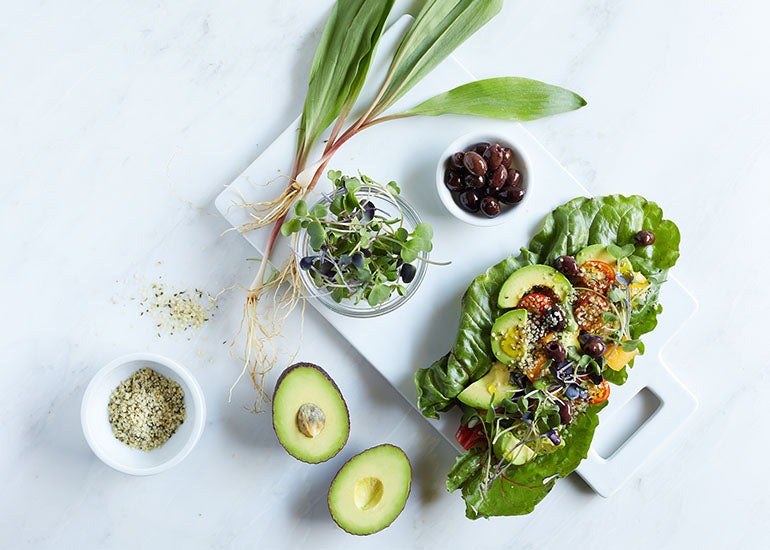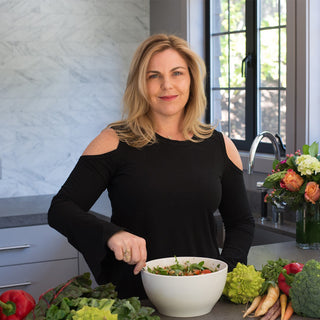Turn on the news at any given moment and you’re likely to see something addressing our massive environmental crisis. And while it’s unlikely that we as a global community will move the needle today or even next month, each of us can commit to small changes every day that will contribute to an eventual shift towards a healthier world. As we look back at how far we’ve come as an organization over the last 15 years, we at Navitas are refocusing our efforts moving forward to inform, educate and empower individuals to make healthy choices that will benefit themselves and our home planet for generations to come. Read on to learn more in this exclusive interview with Navitas Co-Founder, Meg Adelman, RN, BSN, MPH.
Team Navitas: What was your motivation for starting a superfood company?
Meg Adelman: It really began back in the early 1990s when the organic movement first began to officially take shape, along with the development of the Organic Food Production Act, which was followed shortly thereafter in 2000 by the induction of the organic certification. An exciting and formative evolution for health enthusiasts of all walks of life, this was an especially impactful time for Zach and me as the idea for what would eventually become Navitas Organics began germinating.
Our primary mission then, which still holds true today, was to support people to achieve a plant-focused lifestyle, reduce the amount of animal protein in the diet or heed the call to action to support organically grown food. The answer to all of these is simple – a plant-focused lifestyle not only benefits personal health, but it is also recognized by the United Nations (UN) and many other leading organizations to be one of the greatest efforts we can make in reducing greenhouse gas emissions and addressing our global environmental crisis. Our reliance on meat production and consumption in this country has accelerated into hyperdrive and we need to transition to a more reasonable and rational approach to eating animal protein. By choosing to follow a plant-focused diet, a diet that limits animal protein to a third or less of total intake, we can drive demand for these foods and send market signals through the food value chain back to the farmers. Everyone can make one small effort to help alleviate the burden on the planet and this is one of the most important ways to achieve that goal.
TN: How is Navitas Organics supporting the prospect of a global shift toward a healthier planet?
MA: By offering these ancient traditional foods that have all been grown organically for centuries and are largely outside of Big Agriculture’s control, we’re making convenient, organic, plant-focused nutrition available to people looking for food that can sustain them in their active lifestyles. After more than 15 years of supporting this effort, we’re reframing our mission statement to align more intentionally with this purpose to help with the transition to a plant-focused lifestyle into 2020 and beyond. Our goal is to continue selling products that support organic farmers and people who want to reduce meat and animal consumption. Through this effort, we hope to benefit personal and planetary health long term, as well as bring greater attention to and education about this important topic to help amplify this message as much as we can.
The reality is that the introduction of processed foods and Big Ag’s presence in global markets have caused grave health outcomes. They’re only moving us further away from the original methods practiced by small-scale farmers who follow nature’s sophisticated design to produce their farming commodities for their families and communities. There’s so much we can learn from other countries as far as the simplicity in the way they farm and the food that is produced. In order for us to thrive in the United States today, we need to realize the efficacy of regenerative agriculture and permaculture instead of trying to force or manipulate the result. It’s undeniable that less is more and using these natural synergistic farming methods produces food that is top quality, nutrient dense, better for you, better for the soil and better for all the organisms within that system. We have quite a bit of room to grow in this area, but in order to do so, we need to shake the power loose from the stronghold that exists in our food system. We can only do that together!
TN: What can we do as individuals to promote personal health for ourselves and the planet as a whole for future generations?
MA: There’s a simplicity in the lifestyle of ancient traditional cultures that we should try to replicate and that’s representative of our superfood product line, because they are all simple but powerful ingredients that can be easily added to meals and recipes you’re already making. By consuming our products, you’re providing your body with a host of nutritional benefits, while at the same time supporting small-scale farmers in various regions around the world giving them access to a market in which they can sell foods that they’ve cultivated for centuries. We’re starting to see a movement emerge here in the United States. We’re placing a greater emphasis on knowing your farmer, asking them questions about how their food is grown and how it gets to market, etc. Buying food at farmers’ markets supports the farmer by cutting out the middle man to ensure they get more economic viability out of their crops. All these things are incredibly important if we’re going to start seeing a shift in the food system that benefits everyone as well as the entire ecosystem.
Companies that participate in procuring organic and regenerative products are helping to move the needle on associated costs, which will eventually create equitable sharing of these healthy foods to underserved populations who cannot currently afford them. There are strategies for vulnerable populations to eat organic, but these principles aren’t being demonstrated widely enough especially through our hospital systems, state agencies and schools. These institutions could play a much greater role in educating underserved communities, support the need for organic and vote with their dollars.
We can each make the decision to support companies that have a greater impact in the world such that you can see your purchase tie right back to the farmer in Peru or Brazil or even to your local farmer. Personally, I would rather support the farmer that’s working to sequester a significant amount of carbon in the soil than go to a store and buy a product that is working to deplete every element from the soil and release carbon into the atmosphere. It’s a matter of choice and all these small choices amount to a lot of what will the future of food will eventually look like.
TN: If organic products are clearly much better for us, why is there still so much resistance?
MA: Whether we decide to shop at a farmers’ market or shop at a grocery store, that organic certification ensures that it will not be sprayed with endocrine-disrupting chemicals known to cause metabolic and neurologic disorders. There’s an abundance of research proving that glyphosate, for example, is tied to cancer, but the top global purveyor of glyphosate isn’t even mandated by the Environmental Protection Agency (EPA) under the current administration to put a cancer warning label on their products. However, we and many other like-minded health food companies are required to put Prop 65 labels on select products sold within California stating there’s the potential for certain chemical exposure. While consumer protection is our number one goal, comparing Cacao Powder to glyphosate is absurd. It’s like comparing something that has tremendous health benefits to something that is known to cause human harm and unfortunately, we’re continuing to experience this regulatory injustice on a global scale.
The reality is that even if we stopped using glyphosate today, there would still be glyphosate in our atmosphere, environment, soils, water and air for 50 more years because it’s a persistent bioaccumulative and toxic chemical (PBT). If we want to realize the day where the ecosystem is restored to a more pristine condition, we have to start voting with our dollars and purchase food that is consciously grown without chemicals and intensive farming methods. If you’re not going to do it for your own health, consider the health of your community or of your kids, or think about doing it from a global perspective. We need to get started now to diminish the amount of chemical load that’s in our environment and we can only do that one person at a time. It’s clear we can’t rely on our government to do the work of regulating agencies like the Food & Drug Administration (FDA), United States Department of Agriculture (USDA) or even EPA to put hazard labels on packaged foods that are truly harmful. The organic certification remains the best form of protection we have and guarantees that the food we buy won’t have toxic chemicals, be irrigated with sewage sludge (which actually happens in some parts of the country!) or is grown from GMO seeds. As it relates to animal protein, the organic certification signifies that animal welfare standards are upheld and that animals will not be administered unnecessary antibiotics or growth hormones, which is detrimental to human health in a variety of ways. That is a whole separate, but important conversation though.
TN: So, what do you think the future of organic looks like for us?
MA: The next step will be focusing more attention on regenerative agriculture, which emphasizes soil health. Regenerative is the new goal – it takes the organic certification one step further by promising all the same qualities inherent in organic plus adds in extra considerations to protect the soil. Regenerative agriculture eliminates over-mechanization of the soil with machinery to avoid disrupting and killing all of the organisms within it. The process allows for the natural symbiotic relationship in the ground to happen in order to create proper nutrient cycling that releases the vital nutrients we need in our food back into the plant, into our animals, and ultimately, into our bodies. At the same time, it sequesters elements like carbon, which is rapidly being released through other forms of farming and creates better filtration of water. Animal integration methods are key to this too! All of this will be critical in the face of intensified climate changes that has the potential to cause serious human harm.
Ultimately, we need to just get back to farming that is better for our health and for the environment, and the best certification we have to stand behind right now remains the organic certification. Years from now, I’m sure we’ll see a new regenerative organic certification, but until then, we stand behind organic because of the reliable health protection it has built into it.
We hope you enjoyed reading about the undeniable importance of organic and welcome you to follow @navitasorganics on social media throughout September (and beyond!) for a variety of additional opportunities to learn even more!
)

